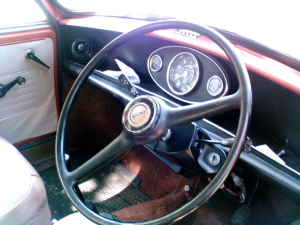W2R
Moderator Emeritus
We're thinking of switching to Toyota. Honda doesn't seem to back their products when there is a design flaw. The A/C unit was faulty on Honda CRVs and it took a class action lawsuit for them to cover some of the cost. I think thy lost a lot of customers on that one. We bought a Honda lawnmower and the transmission went out after maybe 25 uses. Honda redesigned the transmission but didn't issue a recall.
Toyota isn't perfect either. I call my top of the line 2009 Venza my "nanny car". I was thinking of buying something cheaper next time, and/or another brand, in the hopes that it would have fewer electronic features and would be less bossy.


